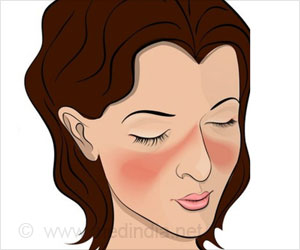Vitamin D intake which is required for overall health was found to be low among UK South Asians which may lead to an increased risk of chronic illnesses such as osteoporosis, cancer, and cardiovascular disease.

‘Vitamin D intake which is required for overall health was found to be low among UK South Asians which may lead to an increased risk of chronic illnesses such as osteoporosis, cancer, and cardiovascular disease. Public health strategies are mainly required to tackle low intakes of vitamin D in the UK South Asian population.’





This makes it even more important that they have adequate oral intake of vitamin D, through diet or supplements.Examining 8,024 South Asians (Bangladeshi, Indian, and Pakistani) participants, researchers found low intakes of this vital vitamin. In tandem with a lack of sunlight exposure, this would put them at increased risk of chronic diseases including osteoporosis, cancer, and cardiovascular disease. Vitamin D is vital to our health as it helps regulate the immune and musculoskeletal system.
Researchers found that vitamin D intake through diet was low amongst this group at 1.0-3.0 micrograms per day, but there was a differentiation in ethnicity, with Bangladeshis having on average higher vitamin D intake (3.0mcg) than Indians (1.0mcg). However, all of the groups were below both the European Food Safety Authority recommendation (15 micrograms per day) and the Public Health England recommendation (10 micrograms per day), which is needed to ensure adequate health in adults.
Vitamin D supplementation use, which is a good way of increasing vitamin D levels in the body, was also low amongst UK South Asians, with only 22 percent of Bangladeshis, 32 percent of Indians and 25 percent of Pakistanis taking a vitamin D containing supplement.
Within this group, women (39 percent) were more likely to take supplements than men (23 percent).
Advertisement
Lead author Dr. Andrea Darling, from the Department of Nutritional Sciences at the University of Surrey, said: "Such low levels of vitamin D intake and vitamin D supplement use in this population group is very concerning. Vitamin D is crucial to ensuring our overall health, and a lack of it leads to an increased risk of chronic illnesses putting an additional strain on the NHS.
Advertisement
Source-Eurekalert















